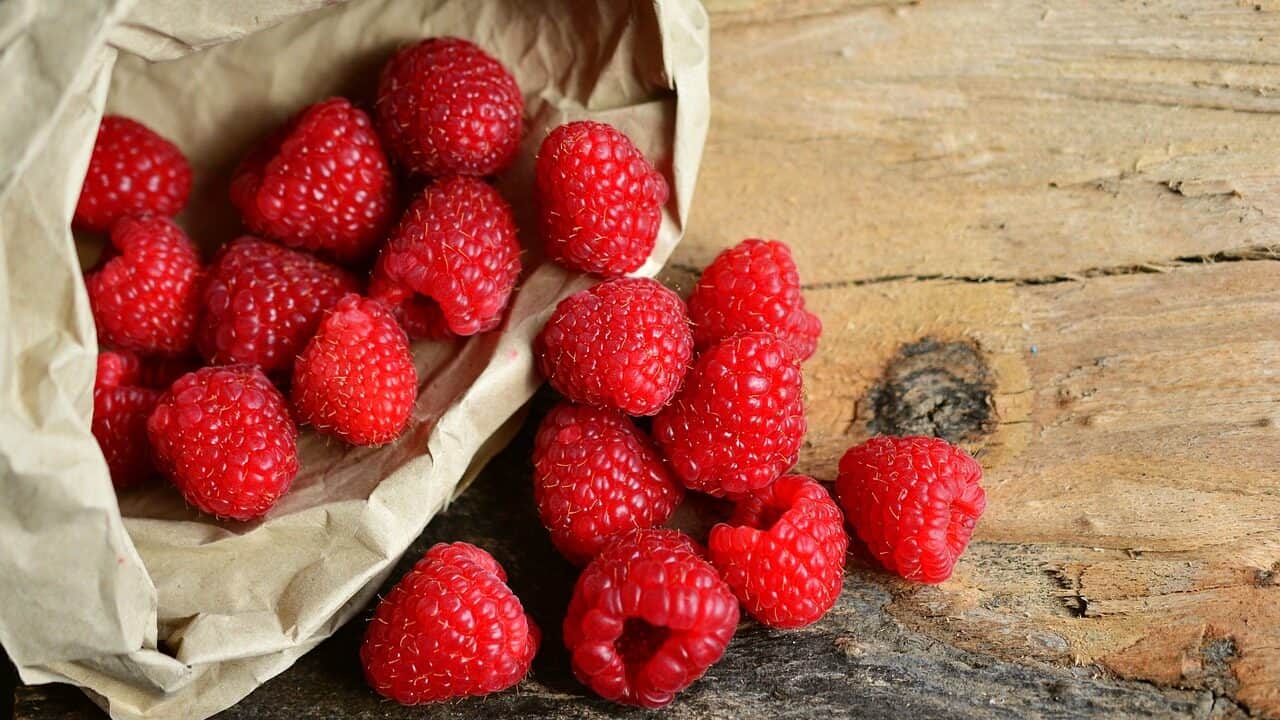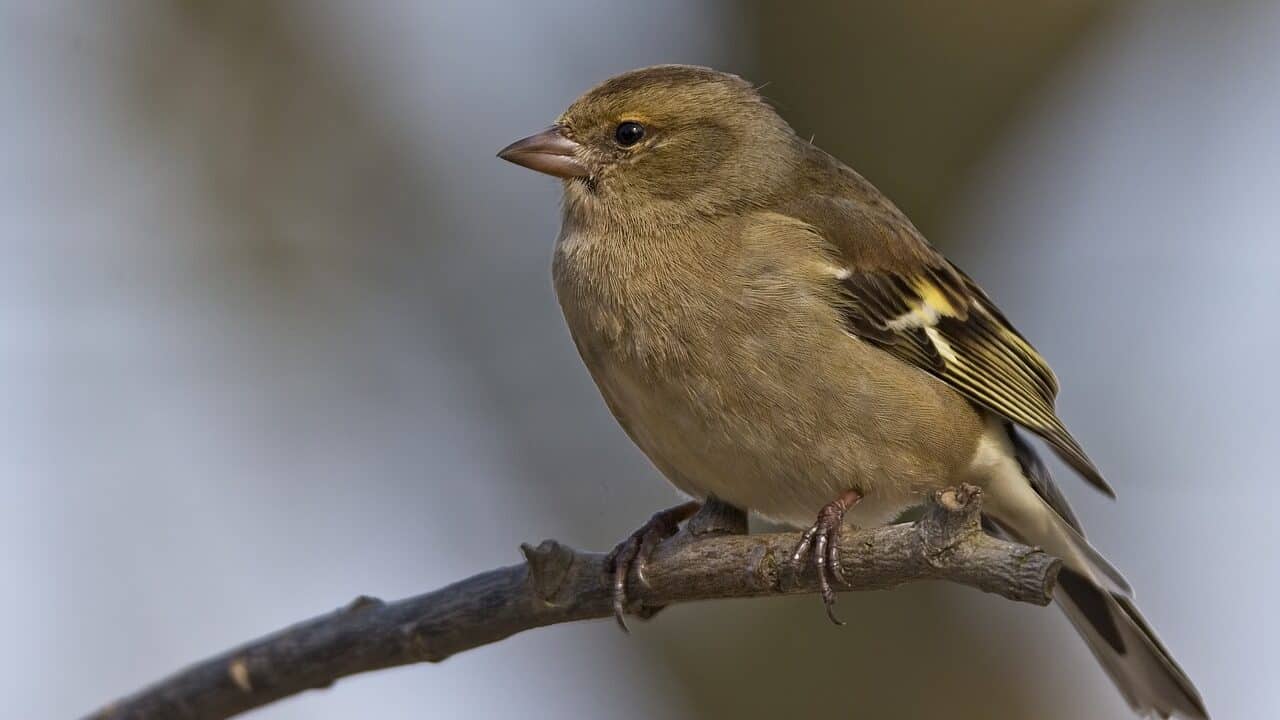By Jarrod E. Stephens, Kentucky, Zone 6 Don’t let years of hard work go to waste. Protecting raspberries from birds saves berries for your kitchen!
If I tried to count the number of times in my life that I have braved a thicket of briars to pick wild raspberries with my dad, I’d lose count in a short time. The irresistible taste of a fresh raspberry is hard to beat but sometimes the punishment that you endure to get them can just about get the best of you. In recent years it has become increasingly difficult to find good raspberry patches in our area because of cleared or neglected land. It seemed that you used to be able to find raspberries in just about every fencerow or at the edge of every field. Now that many fields are badly overgrown and fencerows are mowed clean, the raspberries have dwindled in number. Many folks in our area are now resorting to growing blackberries or small plots of tame raspberries in order to have fresh berries each year.
About four years ago my dad was offered some starts for tame raspberries that were said to be heavy bearers and delicious. To a berry picker from way back that sounded like a great combination so dad got the starts and set out to raise a tame crop of berries. After setting aside a space at the edge of a garden that was about 100′ x 8′, we planted two rows of raspberries. We planted the rows about three feet apart and placed black plastic in the bulk between the two rows and along the outside of each row to keep weeds from growing near the berries. We covered the plastic with wood chips that were given to us by a local tree trimming company earlier in the year. They were glad to find a place to dump their refuse. To support the plants as they grew we placed metal fence posts every eight feet and strung three strands of heavy duty galvanized wire between the posts. The rows looked great and the berry plants were doing wonderfully with vertical farming.
Finally, the first year that the plants were to bear fruit had arrived. As the little green berries began to swell and ripen, the bird population rose significantly in the vicinity of the tame berry patch. Birds of many varieties were so pleased with the berries that they helped themselves daily, and it didn’t take long for us to notice. To protect raspberries from birds, we used landscaping netting that was purchased from a lawn and garden store. The netting’s intended purpose is to hold straw in place after seed has been sown on an area. It is very lightweight and comes in rolls that are 7′ x 100′. If you pay close attention at your local home and garden store you can sometimes find the landscape netting on sale at the end of the growing season. We have found it for as cheap as $3/roll.
Before we put the netting over the berries we created an arching frame over the rows using some tubing from a discarded trampoline. The tubing fit over the tops of the posts. We unrolled the netting lengthwise and tied it to each arch. When we completed the job we had a handy walkway down the middle of the rows that was protected from the pesky birds. It was amazing how well the netting worked.
After the berry-picking season ended we removed the netting and stored it for use the following year. The process is simple and the netting is easy to handle. Since that first year, we have continued to use the netting method and our troubles with the birds getting the berries are gone. Sure, protecting raspberries from birds takes a little time and effort, but when you get to sit down with some fresh raspberries and ice cream or make preserve recipes, I’m sure you’ll agree that the labor is worth the reward.
Jarrod is a schoolteacher, farmer and freelance writer. His first novel, Family Field Days can be ordered from www.oaktara.com/Jarrod_E.html.
Do you have any tips for protecting raspberries from birds? Let us know in the comments.
Bird Cause Damages to Raspberries
Birds will not resist ripened raspberries. And they bring with them many damages to your raspberries:
- Knock off raspberries when they are eating and hopping.
- Leave partially or wholly eaten raspberries
- Peck and puncture your raspberries

Which Birds Eat Your Raspberries
The raspberries are tasty and nutritious to many birds. And in commercial orchards, farms, and gardens, you can find birds everywhere.
Well, not all birds are interested in eating your berries. But watch out for the big bird especially pigeons. They eat the whole of your raspberries. Small birds for example finches peck and puncture your berries.
Other birds to be spotted feeding on your raspberries include
- Robins,
- starlings,
- Warblers
- Thrushes
- Baltimore oriole.
- Blue jay.

Please share any advice you may have in the comments section to help keep birds away from raspberries.
At last, the year the plants were supposed to yield fruit had come. Around the meek berry patch, the number of birds increased dramatically as the small green berries started to ripen and swell. It didn’t take long for us to notice that birds of all kinds were so happy with the berries that they helped themselves every day. Our method for keeping birds away from raspberries was to use landscaping netting that we got from a lawn and garden store. The net’s main function is to keep straw in place once an area has been seeded. It comes in rolls measuring 7 feet by 100 feet and is incredibly lightweight. At the end of the growing season, if you keep an eye out, you can occasionally find landscape netting on sale at your neighborhood home and garden store. We have found it for as cheap as $3/roll.
After the berry-picking season ended we removed the netting and stored it for use the following year. The process is simple and the netting is easy to handle. Since that first year, we have continued to use the netting method and our troubles with the birds getting the berries are gone. Sure, protecting raspberries from birds takes a little time and effort, but when you get to sit down with some fresh raspberries and ice cream or make preserve recipes, I’m sure you’ll agree that the labor is worth the reward.
Using some tubing from an abandoned trampoline, we built an arching frame over the rows before covering the berries with netting. The tubing fit over the tops of the posts. We lengthwise unrolled the netting and fastened it to every arch. After the work was finished, we had a convenient walkway that ran down the middle of the rows and kept the annoying birds out of the way. It was amazing how well the netting worked.
If I tried to count the number of times in my life that I have braved a thicket of briars to pick wild raspberries with my dad, I’d lose count in a short time. The irresistible taste of a fresh raspberry is hard to beat but sometimes the punishment that you endure to get them can just about get the best of you. In recent years it has become increasingly difficult to find good raspberry patches in our area because of cleared or neglected land. It seemed that you used to be able to find raspberries in just about every fencerow or at the edge of every field. Now that many fields are badly overgrown and fencerows are mowed clean, the raspberries have dwindled in number. Many folks in our area are now resorting to growing blackberries or small plots of tame raspberries in order to have fresh berries each year.
FAQ
How do you protect raspberries?
How do you keep animals from eating raspberries?
What kind of bird eats raspberries?